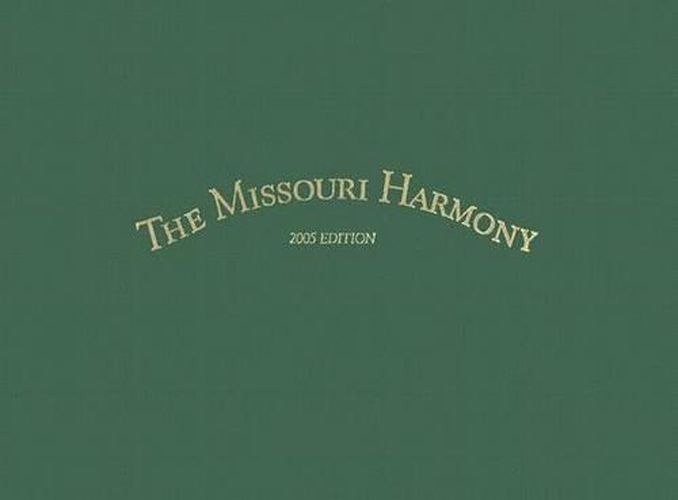Readings Newsletter
Become a Readings Member to make your shopping experience even easier.
Sign in or sign up for free!
You’re not far away from qualifying for FREE standard shipping within Australia
You’ve qualified for FREE standard shipping within Australia
The cart is loading…






With a history dating back to 1820, The Missouri Harmony was the most popular of all frontier shape-note tune books. The 185 songs in the collection were favorites used in Protestant churches and singing schools, and many were already deeply rooted in American culture by the time of its first publication. The story of the book is the story of a burgeoning nation, with its origins in a St. Louis school (where it was introduced by singing master Allen Carden) and its spread along the Mississippi River and its tributaries. It’s said that even Abraham Lincoln and his sweetheart Ann Rutledge sang from The Missouri Harmony at her father’s tavern in Illinois. Compilations such as The Missouri Harmony not only helped teach midwesterners to read music but also carried a uniquely American heritage of shaped notes, a system of musical notation that grew out of the singing school movement in eighteenth-century New England. Furthermore, this heritage would be, according to composer Virgil Thomson,
the musical basis of almost everything we make, of Negro spirituals, of cowboy songs, of popular ballads, of blues, of hymns, of doggerel ditties, and all our operas and symphonies.
$9.00 standard shipping within Australia
FREE standard shipping within Australia for orders over $100.00
Express & International shipping calculated at checkout
With a history dating back to 1820, The Missouri Harmony was the most popular of all frontier shape-note tune books. The 185 songs in the collection were favorites used in Protestant churches and singing schools, and many were already deeply rooted in American culture by the time of its first publication. The story of the book is the story of a burgeoning nation, with its origins in a St. Louis school (where it was introduced by singing master Allen Carden) and its spread along the Mississippi River and its tributaries. It’s said that even Abraham Lincoln and his sweetheart Ann Rutledge sang from The Missouri Harmony at her father’s tavern in Illinois. Compilations such as The Missouri Harmony not only helped teach midwesterners to read music but also carried a uniquely American heritage of shaped notes, a system of musical notation that grew out of the singing school movement in eighteenth-century New England. Furthermore, this heritage would be, according to composer Virgil Thomson,
the musical basis of almost everything we make, of Negro spirituals, of cowboy songs, of popular ballads, of blues, of hymns, of doggerel ditties, and all our operas and symphonies.